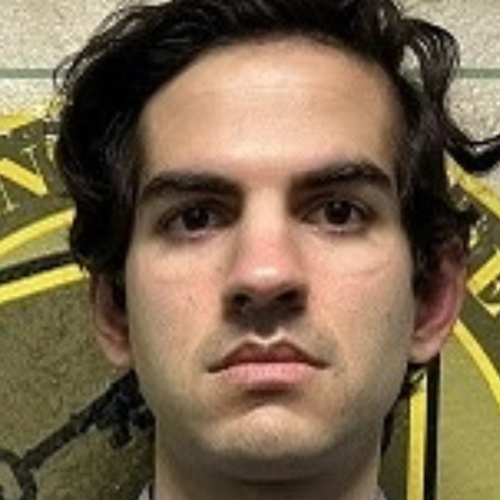 Opowieść snuta przez pokolenia
Opowieść snuta przez pokolenia
RABIN JONATHAN SACKS
Tłumaczenie: Jolanta Różyło

PARSZA BO
Jest to jeden z najbardziej zaskakujących ustępów w literaturze religijnej. Mojżesz, na kilka dni przed wyjściem z Egiptu, przemawia do Izraelitów. Wygnanie trwa w tym momencie już dwieście dziesięć lat. Po wstępnym okresie spokoju i beztroski, przyszła era ucisku i zniewolenia, podczas której dochodzi do powolnego ludobójstwa męskich potomków ludu Izraela. Teraz, po wielu znakach i cudach oraz zesłanych na Egipt plagach, udaje się rzucić najpotężniejsze starożytne imperium na kolana i zyskać okazję, by uwolnić się spod jarzma dręczycieli.
Mojżesz nie mówi jednak ani o wolności, ani o krainie płynącej mlekiem i miodem, ani o podróży przez pustynię, która czeka Izraelitów. Zamiast tego wspomina aż trzykrotnie o dalekiej przyszłości, w której tułaczka Izraelitów dobiegnie końca i znajdą się oni – w końcu wolni – na swej własnej ziemi. I znów Mojżesz nie mówi ani o samej ziemi, ani o społeczeństwie, które trzeba będzie stworzyć od nowa, ani nawet o wymaganiach i odpowiedzialności, wiążącymi się z wolnością (o tym, jak wiemy, opowiada księga Dwarim).
Mojżesz mówi o edukacji, szczególnie o obowiązku rodziców wobec dzieci. Zajmuje się pytaniami, które mogą zadać kiedyś żydowskie dzieci, dla których doświadczenie niewoli i tułaczki będą zaledwie odległym wspomnieniem. Mojżesz daje lekcję, do której stosowały się wszystkie pokolenia Żydów od jego czasów do dziś: opowiedz naszą historię swoim dzieciom i zrób to tak dobrze, jak tylko potrafisz. Odgrywaj sceny wygnania i wyjścia z Egiptu, niewoli i wolności. Pozwól dzieciom zadawać pytania. Wskrzeszaj tę opowieść za każdym razem, żeby nie stała się tylko wyschniętym reliktem przeszłości. Tłumacz, że czcisz Boga w rytuałach i podczas świąt nie w podzięce za to, co uczynił dla twoich przodków, ale dla ciebie. Niech twoja opowieść będzie barwna, pełna życia i osobista.
Mojżesz uczy nas tego aż trzykrotnie:
„I będzie, gdy przyjedziecie do ziemi, którą da wam Wiekuisty,
jako przyrzekł, przestrzegać wtedy będziecie tego obrzędu.
A gdy wtedy powiedzą wam dzieci wasze: cóż to za obrzęd u was?
To odpowiecie: ofiara to paschalna Wiekuistemu, który przeszedł
mimo domów synów Israelskich w Micraim, gdy raził Micrejczyków,
a domy nasze uchronił. I ukłonił się lud i ukorzył się” (Szemot 12:25-27).
„I opowiesz synowi twojemu dnia onego, mówiąc: to dla tego,
co uczynił mi Wiekuisty, gdym wychodził z Micraim” (Szemot 13:8).
„I będzie, gdy zapyta się ciebie syn twój w przyszłości mówiąc: ‘Cóż to jest?’ to powiesz mu: ‘Przemożną ręką wywiódł nas Wiekuisty z Micraim, z domu niewolników” (Szemot 13:14).
Dlaczego Mojżesz, w tej podniosłej chwili odkupienia, uznał tę naukę za najistotniejszą? Dlatego, że wolność jest dziełem narodu, naród zaś potrzebuje tożsamości. Nie ma jednak tożsamości bez pamięci, która zakodowana jest w opowiadanych przez nas historiach. Nie ma ważniejszego czynnika w budowania ciągłości międzypokoleniowej niż historia naszych przodków, która następnie, jako święte dziedzictwo, przekazywana jest kolejnym pokoleniom. Ta opowiadana przez nas historia to my sami – tożsamość rodzi się wraz z pierwszą opowieścią przekazaną dzieciom przez ich rodziców.
Kryją się tu odpowiedzi na podstawowe pytania, które na pewnym etapie życia zadaje sobie każda myśląca istota: Kim jestem? Co tutaj robię? Jak powinienem żyć? Istnieje wiele odpowiedzi na te pytania, ale dla każdego Żyda brzmią one następująco: jestem członkiem narodu, który Bóg wyprowadził z niewoli; jestem tu, aby budować społeczeństwo, które darzy szacunkiem nie tylko swoją własną wolność, ale również wolność innych ludzi; powinienem żyć w ciągłym przeświadczeniu, że wolność jest Bożym darem, który czcimy poprzez zawarte przymierze prawa i miłości.
W historii Zachodu dwa razy zignorowano, zapomniano, czy też zbuntowano się przeciwko tożsamości. W XVII i XVIII wieku próbowano stworzyć świat bez niej. Projekt ten nazwano później Oświeceniem. Była to szlachetna idea, a znaczenia i dorobku (który bez wątpienia powinniśmy kultywować) Oświecenia nie sposób kwestionować. Pewien jego aspekt od początku był jednak spisany na straty – próba życia bez tożsamości.
Według myśli oświeceniowej w średniowieczu tożsamość ludzi opierała się na wyznawanej przez nich religii. Religia jednak przez wieki prowadziła do wojen między chrześcijanami a muzułmanami, a później, za sprawą reformacji, do konfliktu między poróżnionymi grupami chrześcijan: protestantami i katolikami. Zatem za jedyne pokojowe rozwiązanie uznano całkowite wyzbycie się religii, a zarazem swojej tożsamości. Tożsamości uznano za zbyt personalne – należało czcić tylko rzeczy uniwersalne jak rozum i obserwację, filozofię i naukę. Historie chciano wymienić na systemy, abyśmy wszyscy mogli stać się częścią jednej społeczności jak budowniczy wieży Babel. Jak powiedział Schiller, a Beethoven ubrał w muzykę w IX symfonii: „Alle Menschen werden Brüder”, „Wszyscy ludzie będą braćmi”.
Niestety jest to idea, której urzeczywistnienie, przynajmniej w świecie, jaki znamy, nie jest możliwe. Okazała się ona w końcu fatalna w skutkach. W XIX wieku nastąpił gwałtowny powrót tego, co tak usilnie próbowaliśmy stłumić. Tożsamość powróciła, aby się zemścić – tym razem nie oparta na religii, ale jej trzech substytutach: państwie narodowym, rasie aryjskiej i klasie robotniczej. W XX wieku idea państwa narodowego doprowadziła do dwóch światowych wojen, segregacja rasowa była bezpośrednią przyczyną Zagłady, a walka klas zrodziła przywództwo Stalina, gułagi i KGB. Miliony ludzi straciły życie w imię trzech fałszywych bożków.
W ciągu ostatnich pięćdziesięciu lat Zachód podjął drugą próbę zniesienia tożsamości, tym razem używając skrajnie innych metod. Na Zachodzie czcimy dziś nie uniwersalizm, a indywidualizm – „ja” i „moje” to słowa go definiujące. Moralność – kodeks wartości, który spajał społeczeństwo w imię wspólnego dobra – rozwarstwił się i przekształcił w prawo każdej jednostki do robienia tego, na co tylko ma ochotę, o ile swoim zachowaniem nie krzywdzi bezpośrednio innych.
Nasze tożsamości stały się ledwie maskami, które nakładamy na krótką chwilę i bez większego zaangażowania. Dla większości społeczeństwa małżeństwo jest anachronizmem, rodzicielstwo odłożone zostało na później lub całkowicie odrzucone, a społeczność to tłum bez twarzy. Nadal kultywujemy historie, od „Harry’ego Pottera” po „Władcę pierścieni” i „Gwiezdne wojny”, ale to tylko fikcja, filmy, fantazje. Zaangażowanie zmieniło się w eskapizm. Taki świat wydaje się niezwykle tolerancyjny, jednak tylko do czasu, kiedy spotyka się z przekonaniami, które nie są częścią jego kodeksu. Wtedy ten jakże tolerancyjny świat staje się brutalnie bezwzględny, aż w końcu zdegradowany zostaje do polityki tłumu. Tak rodzi się populizm – preludium despotyzmu.
Czas dzisiejszego hiperindywidualizmu dobiegnie końca. Jako istoty społeczne nie możemy żyć bez tożsamości, rodziny, społeczności i wspólnej odpowiedzialności. Oznacza to, że nie możemy również żyć bez opowieści, które łączą nas z przeszłością, przyszłością i innymi ludźmi, z którymi dzielimy tę samą historię i los. Biblijny przekaz jest wciąż aktualny: aby stworzyć i utrzymać przy życiu wolne społeczeństwo, musimy uczyć nasze dzieci o tym, jak zdobyliśmy wolność i co dzieję się, kiedy jej zabraknie. Musimy opowiadać im o przaśnym chlebie reprezentującym nieszczęście i gorzkich ziołach niewoli. Utrata własnej historii, zapomnienie kim się jest i dlaczego, grozi utratą wolności.
Nie pieniądze czy przedmioty, ale właśnie historie są najcenniejszym prezentem, jaki możemy podarować swoim dzieciom. Ne mogą to być jednak fikcje, ale prawdziwe opowieści, które łączą nasze dzieci z nami i z naszym bogatym dziedzictwem wzniosłych idei. Jesteśmy spadkobiercami historii, która inspirowała setki pokoleń naszych przodków i ostatecznie zmieniła świat Zachodu. Zapomnienie jest równoznaczne z utratą. Zachód już zapomina o swojej historii. Nie pozwólmy, aby i nasza została zapomniana.
Z perspektywy trzydziestu trzech wieków, które minęły od czasów Mojżesza, możemy dostrzec, że miał on rację. Opowieść snuta przez pokolenia jest darem tożsamości – wiedząc, kim i po co jesteśmy, możemy przebrnąć przez pustynię czasu odważnie i śmiało. Oto idea, która może zmienić życie.
twoje uwagi, linki, wlasne artykuly, lub wiadomosci przeslij do: webmaster@reunion68.com




